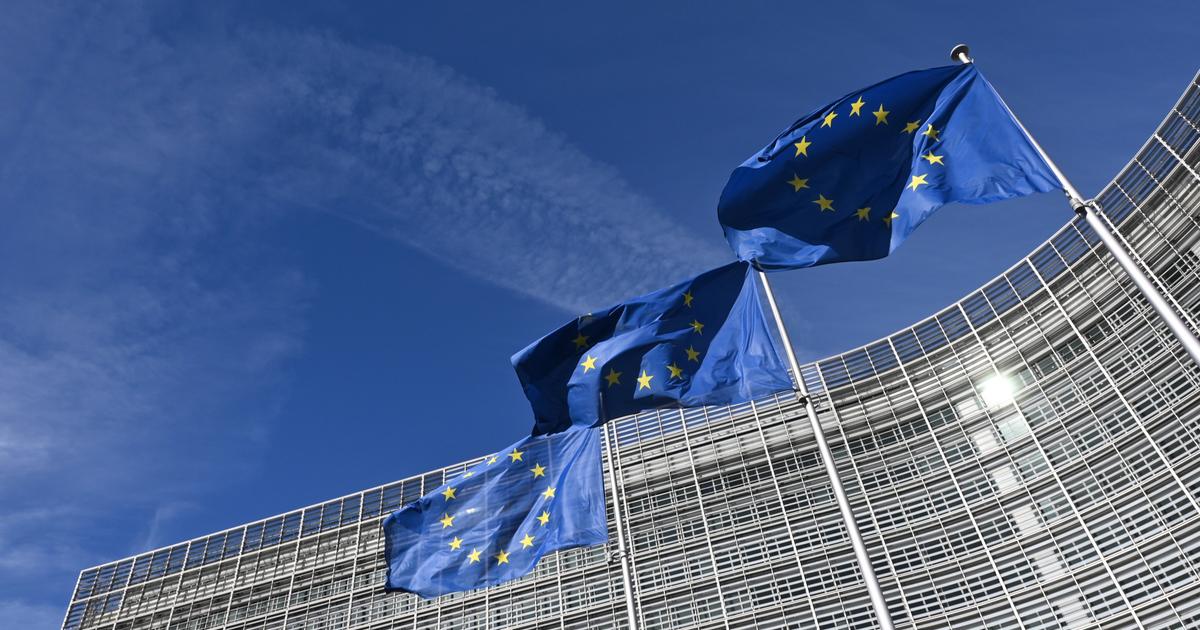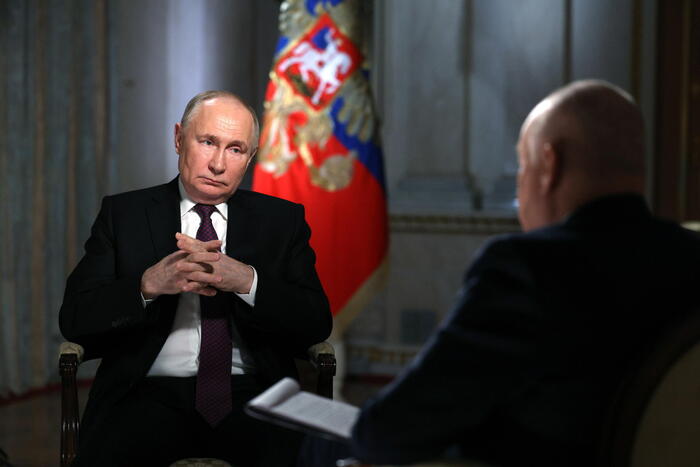Icon: enlarge
Only a sovereign European Union can face the USA on an equal footing.
Photo: Getty Images
The dispute over terms such as "strategic autonomy" or "strategic sovereignty" is a "toxic quibble", write Claudia Major and Christian Mölling in their criticism of the current debate about the role of the EU in the world.
But there are no purely semantic debates.
This is conducted abstractly in order to conceal deeper substantive differences - and the resulting political consequences.
Because there are: some de facto distrust France more than the USA, but do not dare to articulate this openly.
And yes, there will be no European strategic sovereignty according to French taste.
But it is not enough, on the one hand, to reject French proposals as illusions and, on the other hand, to suggest compliance with the two percent NATO target as a revival of transatlantic relations.
Hence a proposal to put it into concrete terms: We agree that good transatlanticists are those who are ready to do more for their own European security.
We agree that we will not or will not be militarily independent of the USA, at least in the medium term.
So it's not about self-sufficiency, isolation or going it alone, but about European strategic sovereignty, understood as an independent ability to act.
It is about defining common goals as Europeans and being able to achieve them.
European strategic sovereignty means creating the basis for preserving the values of the European Union - human rights, liberal democracy, multilateralism, socio-ecological market economy - in the interwoven and complex world and for pursuing European interests.
Therefore, strategic sovereignty and multilateral cooperation remain inextricably linked.
This is more than just resilience, i.e. reducing vulnerability due to global interdependencies.
more on the subject
»Strategic Autonomy« of Europe: Toxic quibblingA guest contribution by Claudia Major and Christian Mölling
Translated, this means recognizing dependencies among one another and on others, reducing or diversifying where necessary and intensifying European cooperation for this purpose.
This must not remain theoretical; concrete political steps must follow from this, which we must agree on in order to be able to propose a European-transatlantic agenda to the upcoming US President Joe Biden.
We now have to implement our European sovereignty in five dimensions: defense, economy and finance, health, digital and climate.
For a better European defense we do not need national spending targets.
Rather, we should agree on what we are spending our money on: What are our foreign policy priorities and goals?
Where are the settings and situations in which we can, want and have to act?
We have to define that for ourselves and then together with the USA.
On this basis, we must then create the appropriate capacities in Europe.
In a first step, that would mean giving political support to the two large Franco-German projects Future Combat Air System (FCAS) and Main Ground Combat System (MCGS) in such a way that they receive the necessary planning capacities in the Ministry of Defense and our deficits in consolidating the national arms industry are not at the expense of European cooperation.
more on the subject
According to Macron's “brain death” critique: This is how NATO could be reformed
Criticism of Kramp-Karrenbauer: Macron insists on Europe's independent defense
Icon: Spiegel Plus New US Secretary of State Antony Blinken: The End of "America First" By Ralf Neukirch, Washington
We should develop the euro into an international reserve currency that will also give us more weight and leeway in foreign policy.
Otherwise we can no longer complain if a successor to Biden, for example, cancels an Iran agreement and enforces his policy on the dollar.
To do this, the euro needs a European Monetary Fund and its own budget that stabilizes and invests.
For many in Germany, this is a more uncomfortable debate than that of defense policy because it calls into question the belief that we can preserve the euro without deepening economic and monetary union.
Europe's sovereignty is also decided digitally in the 21st century.
When expanding 5G, Europe should rely on its own players such as Ericsson, Nokia and small and medium-sized European providers so that we can secure future technologies.
The EU must go its own way of digitization, with a high level of data protection and open sources.
But we should offer the USA to go this way together by adequately regulating data octopuses like Facebook and Google and thus setting common standards.
For our health, not only in the fight against Corona, we have to coordinate the manufacture of medical products across Europe and diversify supply chains so as not to be dependent on individual countries.
We need a European early warning system, a common intensive care bed register and, in border regions, task forces for cross-border testing and tracking.
Here we should exchange ideas with the Biden administration and their expert advice.
The German-American collaboration between Biontech and Pfizer is exemplary for this.
Climate protection is also an important dimension of strategic sovereignty.
On the one hand, it is about the preservation of technologies in Europe, such as storage, which are absolutely necessary to achieve the climate goals.
We must therefore use the European Reconstruction Fund to invest in European energy and rail networks, building renovations, solar roofs, storage technologies and green hydrogen.
On the other hand, we have an obligation to provide the South with technologies and financial support for transformation and adaptation, and an interest in a peaceful conversion of the countries that have hitherto been heavily dependent on fossil fuels.
We therefore need sustainable climate and energy policy alliances.
To this end, the EU could promote and expand international climate partnerships such as the Under2 Coalition.
Here is also a great opportunity for transatlantic cooperation.
Only with a sovereign EU can we meet the USA on an equal footing, provide impetus and jointly face the new geostrategic challenges that arise from China's political ambitions as well as from Moscow's geostrategic considerations and actions.
To do this, the EU now needs bold initiatives in these five areas.
But none of this will work without the broad support of our people.
It is about a new self-image of our state and the self-image of every EU citizen.
Today it is no longer enough to come to an understanding diplomatically - otherwise every agreement will rest on feet of clay and be susceptible to every unscrupulous populist attack.
We must therefore conduct the debate in full transparency.
The federal election campaign ahead of us offers the opportunity for this.
In the coming year, all parties will have to answer the Gretchen question: How do you feel about the European ability to act?
Icon: The mirror









